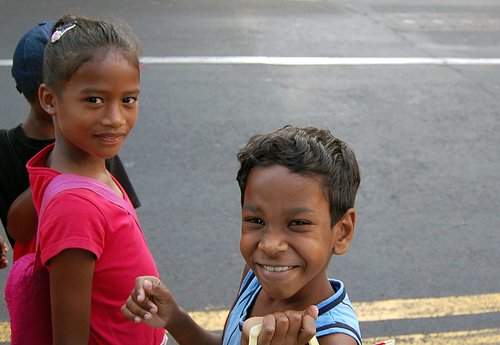Reaching the Marginalized Children in Mauritius


Country Liaison for Mauritius, Mahendranath Busgopaul, discusses the important work the Halley Movement is doing to provide the most marginalized children in Mauritius with access to education. Working in collaboration with civil society organizations and government agencies, the Halley Movement is working to expand access to education and provide meaningful employment once they complete their education.
Marginalized Children Are Being Left Out of the Education System
Every year, some 7,000 children age 12 drop out of the primary school system in Mauritius after having failed their Terminal Certificate of Primary Education twice. While the formal school system—mostly government schools, also known as pre-vocational schools—will absorb approximately 1,000 of these children annually, the rest are left on their own. The children who have dropped out of school find themselves deprived of any further education; most often, these children are from lower socioeconomic backgrounds.
The Halley Movement
The Halley Movement in Mauritius (www.halleymovement.org) works to provide free education to these adolescents to help them achieve useful skills and also help them to go through a re-examination process that will permit them to enroll in a secondary school for higher education. The BETA (Basic Education to Adolescents) Program provides opportunities for approximately 30 adolescents every year, from six rural regions in Mauritius. The courses in this no-fee program are provided by trained educators who are specialists in functional literacy, information and communications technology (ICT), and numeracy skills
Building a Community of Partners
My responsibility, as coordinator and founder of the BETA program since 1998, has been to work with international and local organizations to design and scale up this initiative, collaborate with the government, influence partners to join in the program as funders, resolve conflicts between parents from the local communities and ethnic groups, and negotiate with education agencies to ensure access to quality education. Negotiations with state and non-state organizations have been carried out through various meetings and workshops organized by the Halley Movement to set up and establish common goals and agreements. Diplomacy focused on human rights has been used during these negotiations. Moreover, participation of the civil society has addressed the issue of school drop-outs through workshops that have been carried out through public gatherings and sensitization campaigns among parents of low socioeconomic status.
This program has benefited from the financial support of UNICEF, United Way, and several corporate sector partners. Negotiations have been going on with each partner, as each one takes different approaches related to funding criteria and needs. With government support through the Ministry of ICT, Halley Movement has been able to cope with every single challenge—ranging from conflicts to resource management. Many times, an agreement was reached through “negotiation by exhaustion”; that is, a final deal was reached after 24 to 48 hours of negotiations, where we worked around the clock, with little rest, to reach a final deal. This experience helped our organization reach positive outcomes.
From School to the Workforce
Agreements have recently been concluded with some private sector firms in the neighborhood to enlist learners in the BETA Program as “apprentices” in their firms. Skills that are required by the firms involve basic ICT knowledge and skills, proficiency in French and English, and numeracy skills. This upcoming opportunity for these marginalized adolescents will open a door for them to establish themselves in the working world and start earning income. As a coordinator, I have identified the various regions and families in Mauritius who are most in need of help and guidance. As part of my work at Halley Movement, we have tried to provide the basic necessities to the children and young people to help them move ahead in life. However, I feel more can be done within this context. Unfortunately, Halley Movement cannot reach every household to identify children and young people in need, due to lack of volunteers and resources. More collaboration within the civil society will help us reach more young people and increase our impact.
Disclaimer: The information provided by the Country Liaison represents their perspective on education progress and challenges in their nation. It does not necessarily reflect the point of view of the Association for Childhood Education International staff and leadership.